City Parks:
When Children Danced On Graves
| Charleston
has always struggled with it's Parks. I think
there's two reasons for this: 1... the rich didnt need a Park
as they lived in a park-like setting anyway. 2...The valley
is narrow, and a nice large large park would take up valuable space
that industry would need "back in the day". The back part of
town was still swampland for the most part and after all, the time
period that we're talking about had the city limits ending around
Bradford Street, which meant that a 10 minute walk would place you
almost in the country anyway. But as Charleston grew, a need
for a park was evident, and by the 50s, we had a most beautiful
park up on the hill off Piedmont Road where "City Park
Village now stands. (yes I know it's changed it's name about 3 times
already). That property was the old Charleston General
Hospital, and it was never supposed to be used for anything other than
a hospital OR Park. Somehow we lost it in the mad rush to get
the Interstates through and the rest as they say, is history.
But Charleston DID have a couple of interesting playgrounds,
one being a cemetery where the city's founding fathers were buried.
Children played ball and danced on the graves, never knowing that there
were well over 130 people buried right under their feet. |
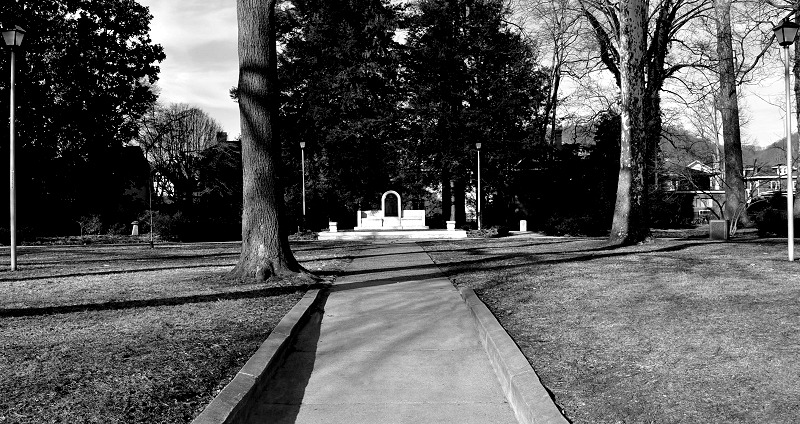 Kanawha Riflemen Memorial Park in the 1500 block of
Kanawha Blvd.
CEMETERY PLAYGROUND?
Kanawha Riflemen Memorial Park in the 1500 block of
Kanawha Blvd.
CEMETERY PLAYGROUND?
In 1920, it was decided to
make the old Ruffner Cemetery into a Playground-Park
Obviously the Ruffner family approved of this, which is most unusual.
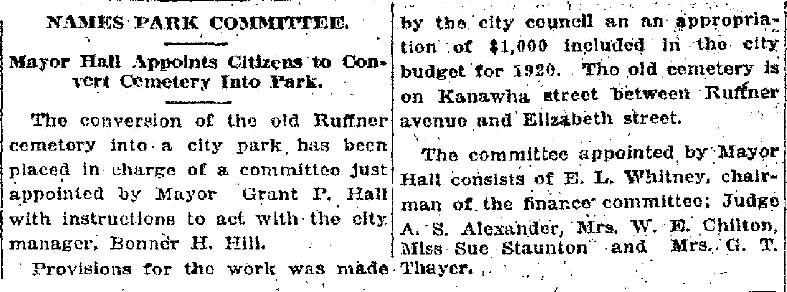
Charleston's Only Park
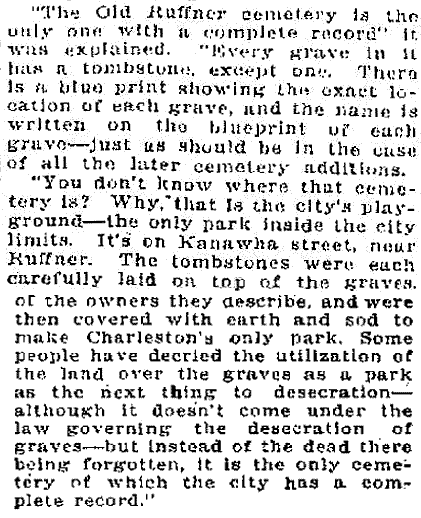
In
1920, the city wasnt keeping good records of it's burials, and this
article is making the claim
that only the Ruffner Cemetery has a complete listing of the people
buried there. It goes on to say
"The tombstones were carefully laid on top of the graves, then covered
with earth and Sod to make
Charleston's ONLY Park". How strange, with all the possible
locations, this cemetery was used as
a playground. Most people could never wrap their heads around
something like this today. |
WE NEED A REAL PARK
This lady is complaining that the city has allowed the
Ruffner Park-Cemetery to go into disrepair,
and that the cemetery should revert back to a shrine, and that the city
needed a real park.
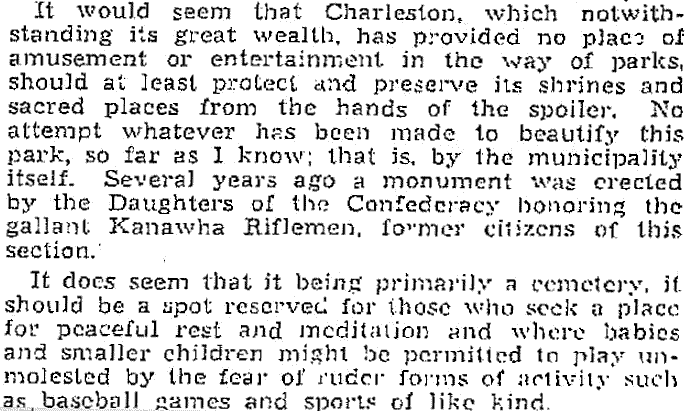
RUFFNER BURIAL PLOTS
 This is the original layout of the Ruffner Cemetery.
Most of these graves are still there today.
This is the original layout of the Ruffner Cemetery.
Most of these graves are still there today.
(See a full list of names at the bottom of the page)
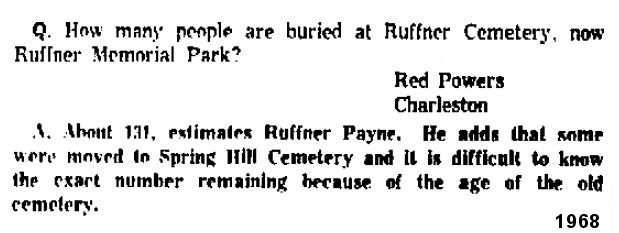
In 1968, the question was asked: How many people are still in the old
Ruffner Cemetery?
Answer? About 207
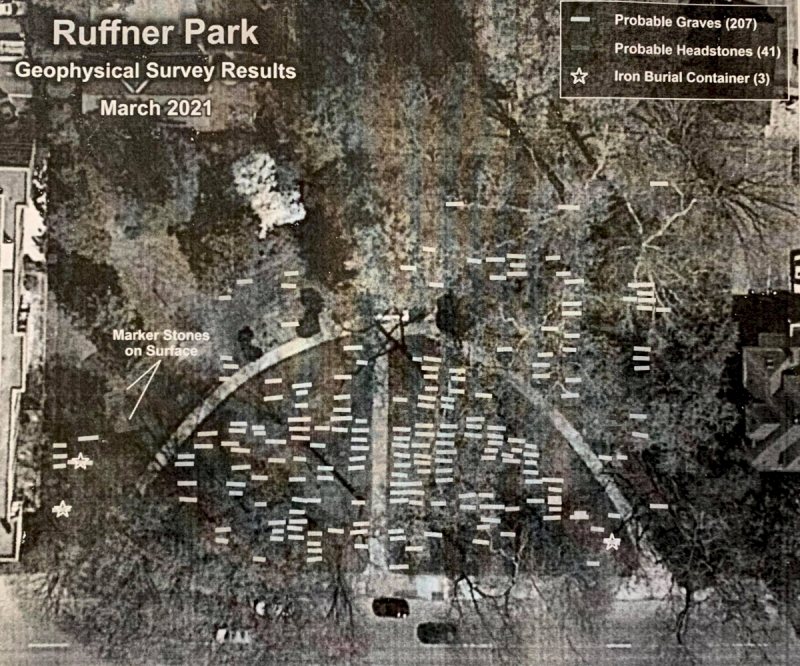
Using Ground-based LIDAR (also known as laser ranging) they discovered 2007 graves in the park.
This was the city’s first public graveyard. Its last burial took place 150 years ago. The
last burial at the Ruffner cemetery took place in 1872. The graveyard,
at or near capacity, closed for good later that year.
By the 1890s, the graveyard had fallen into disrepair and had become a
public nuisance, according to news articles. In 1898, Charleston businessman
George Crouch offered to buy the lot for $1,000. City officials pounced
at the opportunity to be rid of an unused property, which they described
as overgrown “in briers and brush” and a site to “rendezvous for
immoral purposes.”
A few months after Charleston accepted the $1,000 and issued Crouch a
deed for the tract, the heirs of several of those buried in the
graveyard sued in Kanawha Circuit Court to vacate the deed and enjoin
Crouch from moving or obliterating any graves. The heirs prevailed in
the case.
At least 50 bodies were known to have been transferred from the Ruffner
site to Spring Hill Cemetery in the closing years of the 19th century.
Transfers and reburials in unknown numbers continued in the early 1900s,
according to the lawsuit.
A 1917 survey by the city engineer indicated at least 115 graves
remained in the Ruffner tract, but records at Spring Hill Cemetery
indicated 15 bodies, including six members of the Ruffner family, had
been transferred from those graves to the new city graveyard.
Those believed to remain buried in the Ruffner graveyard are a blend of
Charleston’s movers and shakers and everyday citizens, all of whom,
apparently, were white. They include banker, merchant and early
Charleston Mayor James Clark McFarland, who died in 1864 at 72, and
Michael Neff, a farmer and postmaster at Bear Creek, Ohio, who fell ill
and died while passing through here in 1851.
The relocations of 50 bodies to Spring Hill soon after it opened were
arranged by family members and not the city, so no official records
exist.
By 1920, Charleston City Council had voted to use the Ruffner land as the city’s first public park.
Backers
of the reuse plan argued by laying grave markers flat and covering them
with two feet of topsoil, the final resting places were neither
desecrated nor disturbed. The city engineer’s survey completed three
years earlier provided an adequate representation of the bodies
remaining in the former cemetery as well as the basic location of their
graves, they maintained.
|
DID CHARLESTON HAVE
A CITY AMUSEMENT PARK?
Yes! It was located between Lee & Washington Street at Court Street.
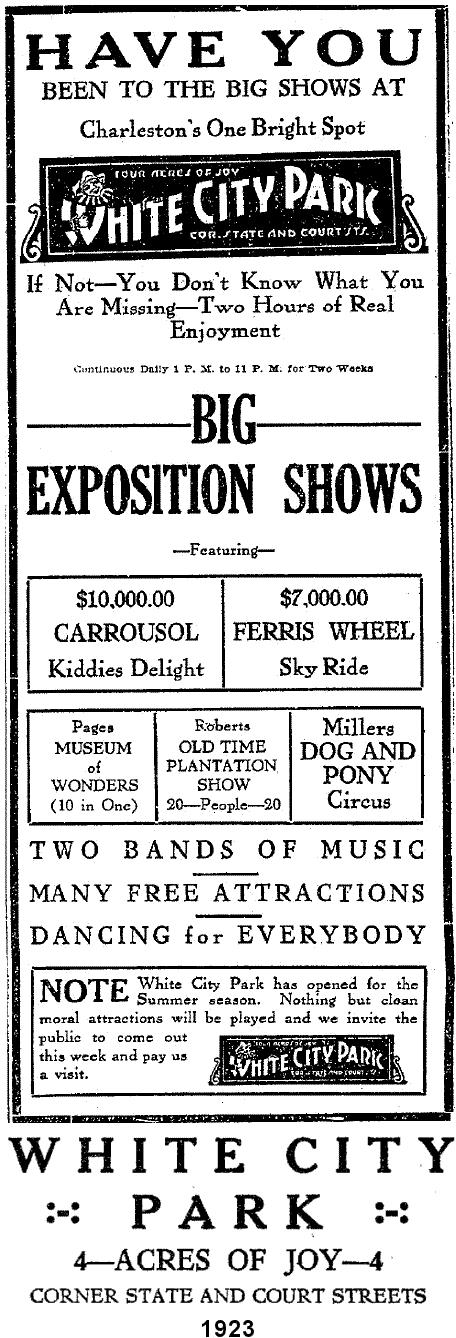
By 1931, the White
City Park was converted into a huge outdoor Fight Arena.

I would love to have photos of these parks, but as far as I know, none
have ever surfaced.
RUFFNER BURIAL LIST
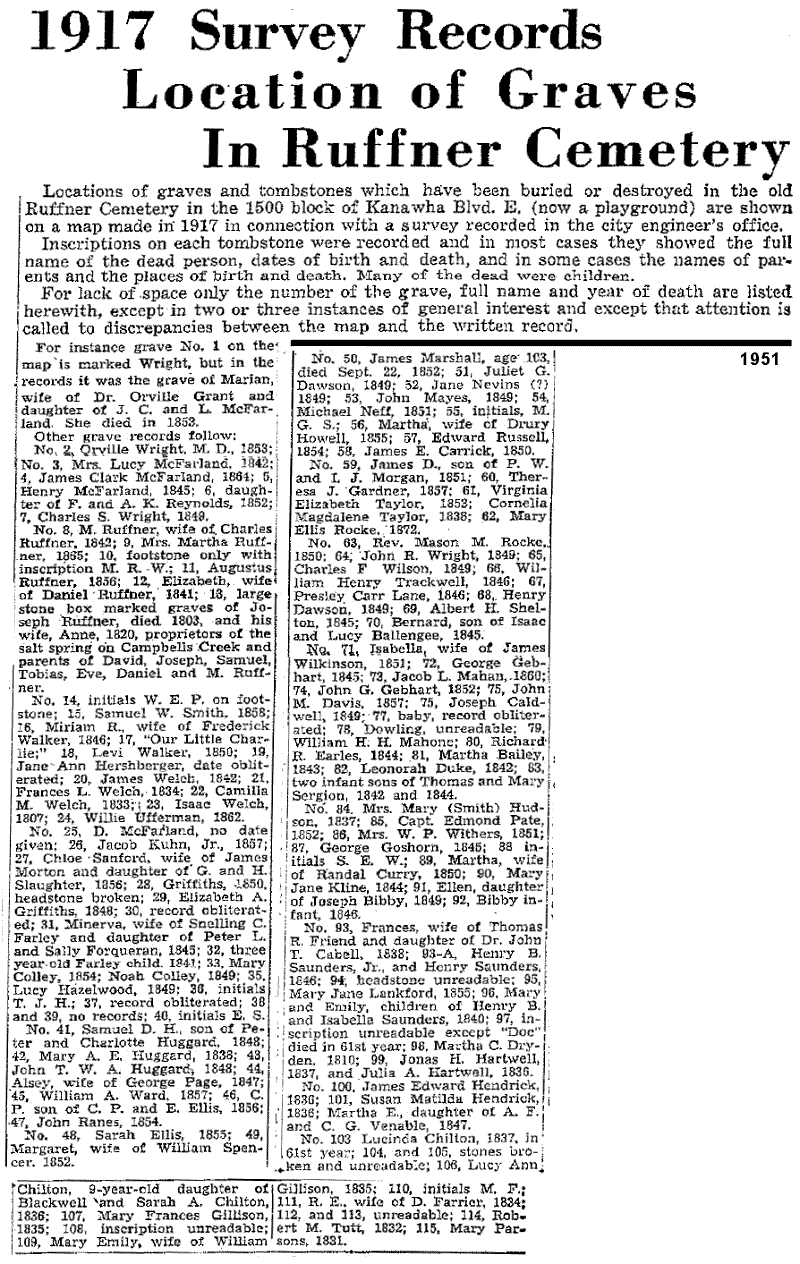
And what about the wonderful city park off of Piedmont
Road?
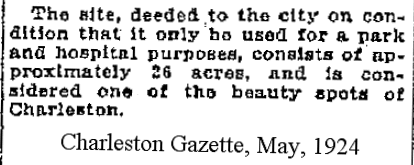
We'll look into that next....
Articles courtesy
of the Charleston Gazette & Daily Mail
BACK
|










